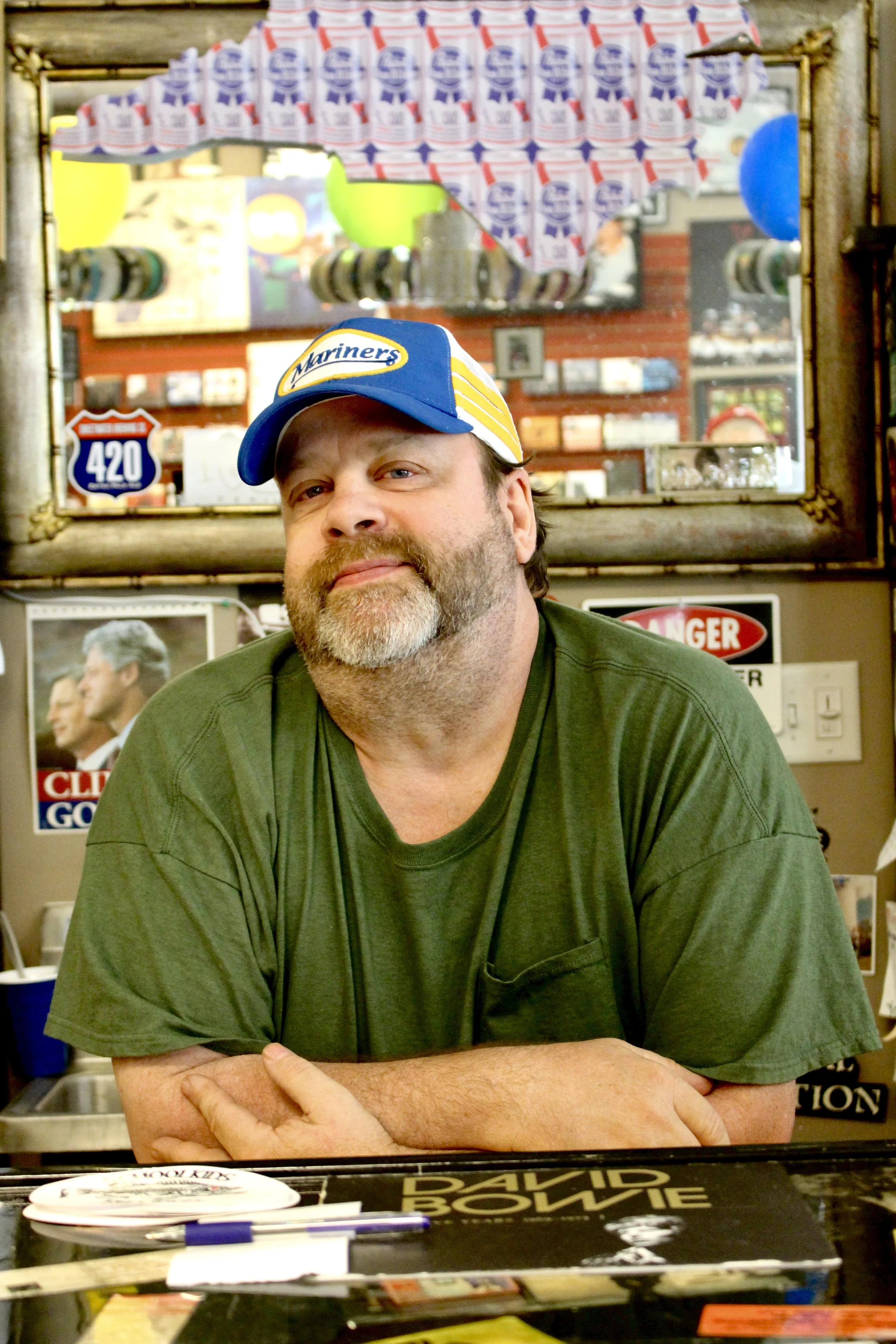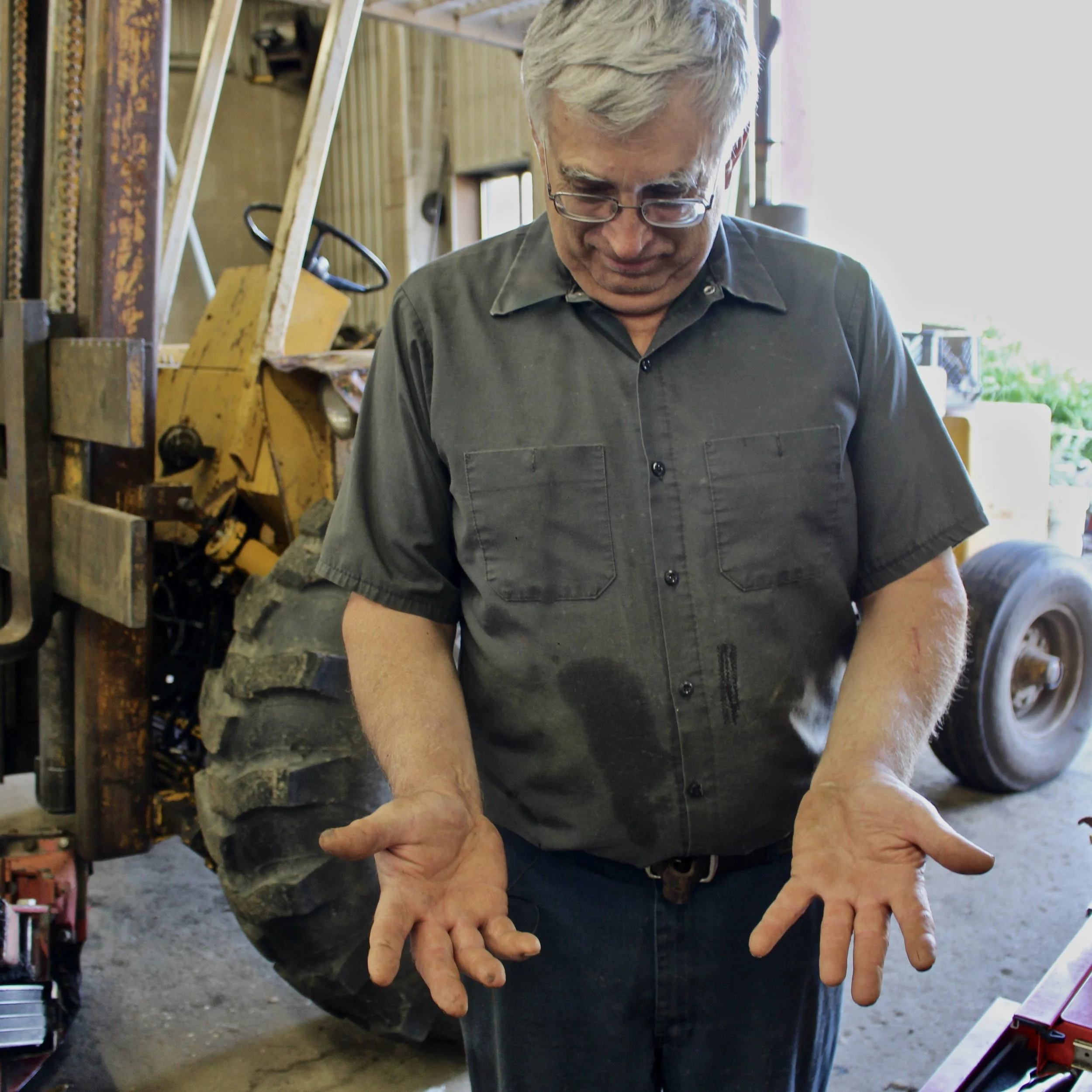Scrutiny in Santa Fe
Pat grew up in Chicago’s near north side, a ways away from her Santa Fe home these days. She spent her childhood in Illinois moving from Chicago, to Villa Park, to Glen Ellen as her parents became more financially successful. Her parents met at 16 and 18 and married at 19 and 21. She told us this wasn’t unusual in the war. She remembers her mom saying everyone was getting married because they were grabbing on to someone before they were maybe dead.
“Growing up in Chicago was great at that time. You just walked out of the house and there was someone to play with. and you’d find a place to play and suddenly there’d be 10 kids there with you playing. We walked to school. We walked everywhere. My parents had a car but we rarely used it. You didn’t take the car to school, didn’t take it to the grocery store, didn’t take it to church. The only time you took it was to visit relatives or go on vacation. We never locked doors even in the city. The first time I ever saw the door locked was when I came home from college. I walked in the garage and the door was locked and it was a moment like “wait a minute, what do I do?.” It just never occurred to me that it would be locked, it was a defining moment. They talk about latchkey kids but I never had a key when my parents weren’t home. Even in the 1960s, my mom had to go back to work because my dad was recalled in the military to Korea and his military pay wasn’t as much as his civilian pay. But even then with just us in the house I never had a key.
When I was growing up, there were no black people in my town and there were no Jewish people in my town. Well, there was one black person and he was great at football so everyone loved him but at dances, he brought in a black girl from some other school so there was no integration of any sort in my community. We didn’t even realize we were segregated. It sounds so tacky to say this but that’s just the way life was then so you didn’t question. Everyone was very similar to each other. And remember there were only 3 TV channels at the time too. So your access to news and entertainment was identical which I think was really telling about the time, and about how much things have changed. People had their values and they said, they’re all the same so why talk about it?”
Pat looked at her past with a sort of bittersweet filter. She revels in the memories of her past, the freedom and safety she felt but at the same time she seems to feel the weight of some of the injustices that flanked her childhood.
“College was where that world crumbled instantly. We sat in the dorms with black girls and Jewish girls and of course, you’re open then, you’re young. We talked and shared with the abandon of 18 year old college girls.
These days, information is so much more easily available to you. When I was growing up, we had a TV but there was only one thing ever to watch. You watched just one of 3 networks for your news. When you did your schoolwork you used encyclopedias, yearbooks, and the library. And that makes you the same. It makes your values pretty much the same. I think that changed with Vietnam because the government botched things so badly there in so many ways.”
Pat married an Evanston man a year older than her while she was still in university. They had a daughter soon after but her brief stint at the classic American Dream was disrupted. Her husband was a commissioned officer in ROTC. As a fighter pilot her husband was in high demand in the war and was deployed to Vietnam soon after their marriage. He was killed one month after he got there.
“The 1960s was when people started to really split in opinion and lifestyle in a big way I think. Prior to that, your goal was to be an adult: get a job, get married, have kids, buy a house, settle down. That was it. In the 60s groups became differentiated, people were social activists or people were more traditionalists. During those times, starting with the assassination of Kennedy, going into Vietnam, the assassination of MLK, 1968 was a blow-your-mind year. I think we were young enough to go with the flow at the time but things were shaken up so much, I imagine if I were 50 in 1968 I would have thought the world was ending. It was hard to all be the same after such cataclysms.
There’s been another big shift I think since the election. In the people around us, we used to never talk politics, now there’s passion. I got together with a group of women the other night, and these are women from my book club. This is not a political group but we’re sitting together thinking what are the issues we can come to consensus on, from immigration, reproductive rights, what have you, and then how can we take action. I look around just in little Santa Fe here and there’s tons of groups that are doing something similar and they’re very organized.”
We talked a bit about what freedom means, and Pat had an analogy I hadn’t heard before that put a fine point on what many people have said so far
“Freedom is the ability to say and do what I want as long as it doesn’t negatively affect other people. There was an old expression: You’re free to swing your arms until you hit somebody else. So that’s more or less how I think of it. I can’t imagine living in an environment where we can’t have a conversation like this, or a conversation like I had at my bookclub the other night. I think freedom is an environment where people can get ahead by their own efforts and not because of who their parents are. It’s freedom to raise your children how you feel is right and not how others say you ought to. But it comes with responsibility. There was an Israeli family I met as they were heading out of the country and they said they were moving back to Israel. They said they had a bit too many choices in what to do and how to do it and not the support and ease of the culture back in Israel and they found that to be more comfortable. So I think there is a weight or responsibility with that kind of freedom that we try to have here in America. ”
We spoke with Pat's husband, Jack as well, which was a similarly enlightening conversation. Check it out here: A Caring Colonel








